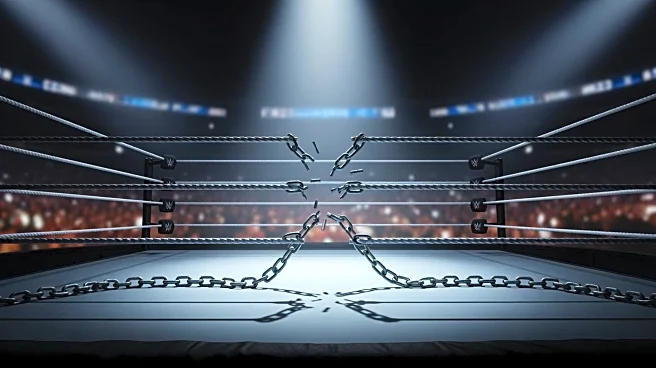What's Happening?
Killer Kross, known as Karrion Kross during his WWE tenure, has disclosed details about his departure from the company in August. Despite being featured prominently on television, including a match against
Sami Zayn at SummerSlam, Kross's exit was surrounded by speculation. In his documentary 'One Big Work,' Kross clarified that while the situation was indeed a 'work,' it was not as fans had anticipated. He expressed feeling deceived, suggesting that the narrative around his contract status was misleading. Kross's second stint with WWE began with high hopes but concluded with creative dissatisfaction, leading him to return to the independent wrestling scene.
Why It's Important?
Kross's revelation sheds light on the complexities of professional wrestling contracts and the narratives crafted around them. His experience highlights the challenges wrestlers face in navigating their careers within major organizations like WWE. The disclosure may influence how fans perceive storylines and contract negotiations in wrestling, potentially affecting WWE's reputation and its relationship with talent. Kross's return to the independent circuit underscores the dynamic nature of wrestling careers and the opportunities available outside mainstream promotions.
What's Next?
Following his departure, Kross has become a sought-after free agent in the wrestling industry. His return to the independent scene opens up possibilities for collaborations with various promotions, potentially leading to new storylines and matches that could redefine his career. Wrestling fans and industry stakeholders will be watching closely to see how Kross's career evolves and whether his experiences influence other wrestlers' decisions regarding contract negotiations and career paths.
Beyond the Headlines
Kross's situation raises questions about the ethical dimensions of contract negotiations and the transparency of wrestling promotions. It highlights the potential for manipulation within the industry, prompting discussions about the need for clearer communication and fair treatment of talent. This development could lead to broader conversations about the rights of wrestlers and the responsibilities of organizations in ensuring equitable and honest dealings.










